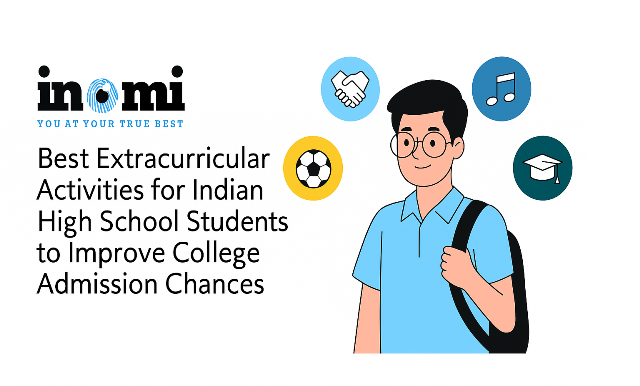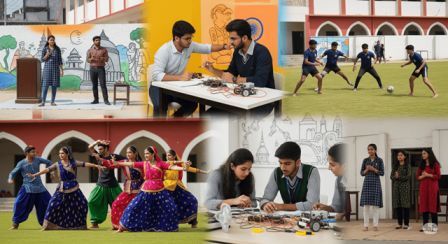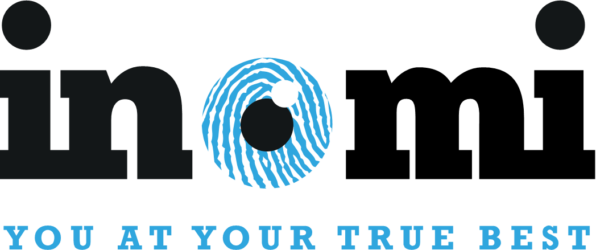
In a 2023 National Association for College Admission Counseling (NACAC) survey, 51% of 4-year colleges indicated that they considered extracurricular activities to be moderately or considerably important in their admissions decisions. The most important were grades in high school courses and the strength (or rigor) of the high school curriculum. In this article, we will look at the best extracurricular activity examples and how to leverage extracurriculars to strengthen your college applications.
Why Extracurricular Activities Matter in College Admissions?
Extracurricular activities are a crucial element of an integrated college application, providing a deeper insight into a student’s personality beyond academic achievement. They tell a story of a student’s interests, special talents, and natural curiosity.
Admissions officers seek out traits such as leadership, commitment, and collaboration, each of which is developed through long-term participation in activities outside the classroom. Whether it’s through a social impact project, a sports team, or an independent research project, these activities demonstrate that a student can manage their time effectively, overcome setbacks, and make meaningful contributions to society. This is how candidates prove they will enhance campus life, not merely occupy a seat.
Related Article: Path to College: A Fun and Simple Timeline (Grade 9 to Grade 12)
Extracurricular Activities Examples to Strengthen Your College Admission Chances
At Inomi, we quite often come across parents who ask us, “What should our child do in their extracurriculars?“, “What are the best extracurriculars for Ivy League colleges?“, etc. When I was in high school (back in the 2000s), my idea of extracurricular activities was very different. With growing competition for college admissions, things have changed drastically over the past two decades. Below are some of the best extracurricular activities examples.
15 Best Extracurricular Activities Examples
| Extracurricular Activities Examples | Why It Matters | How to Leverage for College Admissions |
| Student Government / Prefect / School Leadership Roles | These roles demonstrate your ability to lead, take on responsibility, and make a tangible impact within a community. They show that your peers and teachers trust you, and that you’re capable of handling pressure and advocating for others. | These activities build crucial skills in communication, collaboration, and confidence. They show that you’re comfortable expressing yourself in front of an audience, can think on your feet, and can work as part of a team to achieve a common goal. |
| Social Impact Projects / Community Service | This highlights your empathy, civic engagement, and commitment to making a positive difference. It shows that you possess a strong sense of purpose and are willing to dedicate your time to a cause you believe in. | This demonstrates incredible initiative, creativity, and resilience. Starting your venture shows that you’re a self-starter who can identify a problem and develop an innovative solution. It also reveals your ability to handle failure and learn from mistakes. |
| Model United Nations (MUN) | MUN is a powerful indicator of your global awareness, critical thinking, and diplomacy skills. It shows that you can conduct in-depth research, articulate complex arguments, and collaborate with others to find solutions to real-world problems. | Mention specific awards you won, such as “Best Delegate” or “Outstanding Position Paper.” Discuss the specific committees you participated in and the resolutions you helped draft. If you took on a leadership role, such as organizing a conference or mentoring younger members, be sure to highlight that. |
| Entrepreneurship / Startups / Independent Ventures | This demonstrates incredible initiative, creativity, and resilience. Starting your own venture shows that you’re a self-starter who can identify a problem and develop an innovative solution. It also reveals your ability to handle failure and learn from mistakes. | These are excellent ways to showcase your communication skills, initiative, and ability to build an audience. They demonstrate that you have a passionate interest in a specific topic and can share your expertise engagingly and consistently. |
| Olympiads / Subject Competitions | Participating and succeeding in these competitions validates your exceptional academic ability and passion for a specific subject beyond the classroom curriculum. It shows that you can perform at a high level under pressure and compete with top students from around the world. | Always include your highest rankings, such as “Gold Medalist at the International Math Olympiad.” Mention if you were a team leader or helped mentor other students. If you didn’t win a medal, discuss the rigorous training and problem-solving skills you developed during the process. |
| Research Projects / Paper Publications | This demonstrates a high level of intellectual curiosity and a readiness for college-level academic work. It shows that you’re capable of conducting independent research, working collaboratively with experts, and contributing to a specific field of study. | Detail your research process. What was your hypothesis? What methodology did you use? What were your findings? Mention if your work was published in a journal or presented at a conference. If you worked with a professor, be sure to mention their role and what you learned from the experience. |
| Online Courses + Capstone Projects | This highlights your intellectual self-drive and commitment to continuous learning. It shows that you’re not just passively taking classes but actively seeking out new knowledge and applying it in practical ways. | Don’t simply list the courses you took. Instead, focus on how you applied the skills you learned. For example, “Completed a ‘Machine Learning’ course on Coursera and used the knowledge to build a predictive model for local weather patterns.” Mention any capstone projects you completed that showcase your newfound skills. |
| Visual Arts / Music / Dance (Formal Training or Performance) | These activities demonstrate creativity, discipline, and a long-term commitment to a craft. They show that you’re dedicated to improving your skills and are willing to put in the hours of practice necessary to excel. | Highlight your achievements, such as winning competitions, performing in a major showcase, or achieving a high grade in a formal examination (e.g., Trinity, ABRSM). A well-curated portfolio or a link to a performance video can be a powerful way to showcase your talent. |
| Theatre / Public Speaking / Debate | These are excellent ways to showcase your communication skills, initiative, and ability to build an audience. They demonstrate that you have a passionate interest in a specific topic and can share your expertise in an engaging and consistent way. | Discuss the specific roles you played in theatrical productions, focusing on how you embodied the character and contributed to the overall performance. In debate, highlight awards, leadership roles, or the specific topics you passionately argued for. |
| Sports (District, State, or National Level Participation) | Participating in high-level sports reflects exceptional physical discipline, teamwork, and resilience. It shows that you can balance a demanding training schedule with your academic responsibilities and can handle both victory and defeat with grace. | Focus on more than just your wins. Talk about your role as a team captain, your ability to motivate your teammates, or a specific moment of resilience where you overcame an injury or a difficult loss. Quantify your commitment by mentioning the number of hours you trained per week. |
| Coding / App Development / Hackathons | These activities are a fantastic way to demonstrate creativity and applied technical skills. They show that you can use a programming language to solve a real-world problem and collaborate with others in a high-pressure environment. | Provide a link to your GitHub portfolio or a live version of the app you built. Describe the problem your app solves and the specific technologies you used. If you participated in a hackathon, mention the challenge you tackled and the solution you developed. |
| Blogging / Podcasting / YouTube Channels | These are excellent ways to showcase your communication skills, initiative, and ability to build an audience. They demonstrate that you have a passionate interest in a specific topic and can share your expertise engagingly and consistently. | Mention the size of your audience (e.g., “1,000 subscribers,” “10,000 monthly views”) and the consistency of your content (e.g., “published 50 videos over two years”). Describe your niche and what makes your content unique. |
| International Summer Schools / Exchange Programs | These experiences reflect your openness to new cultures, a global perspective, and your ability to adapt to new environments. They show that you’re a curious and independent learner who is willing to step outside your comfort zone. | Instead of just listing the program, reflect on a specific challenge you faced and how you overcame it. Discuss the new skills you learned, the cultural norms you observed, and the lasting relationships you built with people from around the world. |
| Language Learning (beyond school requirements) | This shows intellectual curiosity, discipline, and cognitive flexibility. Learning a new language demonstrates a willingness to engage with other cultures and think in new ways. | Include any certifications you’ve received (e.g., DELF for French, JLPT for Japanese). Mention how you’ve applied the language in a real-world context, such as tutoring a younger student, translating a document, or communicating with family members. |
| Self-Initiated Projects (Books, Documentaries, Clubs, Fundraisers) | This is the ultimate demonstration of initiative, passion, and ownership. These projects show that you are a highly motivated individual who can identify a need and work tirelessly to create something meaningful. | Describe your motivation for starting the project. What was the “why” behind it? Talk about the challenges you faced and how you overcame them. Quantify your impact by mentioning how many people you reached or the funds you raised. |
How to Strengthen Extracurriculars for College Admissions as Indian Applicants
In India, we have an extremely high academic pressure. So, the extracurricular planning often goes neglected. Besides, internships and gap years are not always a great way for Indian students to stand out in the applicant pool.
There is no such thing as a bad extracurricular activity. However, some are more dazzling to colleges than others. The most remarkable extracurricular activities are the ones that admissions officers hear about least. The more accomplished or engaged a student is in the pursuit they’ve chosen, the more it will stick out to college admissions officers.
Consider this – acting is a stronger extracurricular activity for a college-bound student who had a role in a major movie compared to a student who had a role in a school play
Here is a simple guide on leveraging extracurriculars for college admissions:
- Tier 1 (Highest Impact): Rare, exceptional achievements at the national or international level — such as winning global competitions or publishing in top journals.
- Tier 2: High-prestige leadership roles or selective programs — like school captaincy, major awards, or competitive summer schools.
- Tier 3: Community service or projects with measurable, lasting impact — such as fundraising drives or sustained volunteering.
- Tier 4: Skill-building and creative pursuits — coding, arts, sports, or content creation, showing consistency and growth.
- Tier 5: School-level participation — cultural events, fairs, and intra-school competitions, showing engagement and teamwork.

Extracurricular Activities Examples to Improve College Admissions from the Indian Context
| Extracurricular Activity | Category | Example Activities | How to Leverage for College Admissions |
|---|---|---|---|
| Tier 1 (Highest Impact) | National/International Achievements | Representing India in Olympiads, winning an international debate, founding a national NGO/project with coverage in The Hindu/NDTV, and/or publishing research in top journals | Highlight as a “spike” factor, link to certificates/media coverage, and explain the competitive selection process |
| Tier 2 | Leadership Roles & Prestigious Programs | State-level sports medalist (CBSE Nationals, SGFI Games), Model UN awards, Winner of state-level art/music/dance competitions, and/or attending Harvard/Stanford summer school | Emphasise leadership, initiative, and skills gained; mention competitive acceptance rates |
| Tier 3 | Community Service & Impact Projects | Organising a fundraiser, tutoring underprivileged kids, and launching a local environmental drive | Quantify impact (funds raised, people helped), show long-term commitment |
| Tier 4 | Skill Development & Creative Pursuits | Learning coding, creating a YouTube channel, performing arts, and sports participation | Show consistency, link to portfolios/videos, and explain how it connects to future goals |
| Tier 5 | School-Level Involvement | Participating in cultural events, science fairs, and intra-school competitions | Demonstrate enthusiasm, teamwork, and willingness to engage beyond academics |
Few Useful Tips for Indian High-Schoolers (and Parents)
1. Set Clear Goals
Start by establishing your academic and personal goals. Prioritize the subjects or exams that require the most attention, and create a realistic schedule that interweaves study blocks with brief breaks. The quality of study matters more than the hours of study.
2. Prioritise Effectively
Use methods such as the Eisenhower Matrix (importance vs. urgency) to determine what to work on first. Divide big goals into little, manageable chunks to avoid being overwhelmed and having consistent progress.
3. Embrace Active Learning Methods
Improve studying time by summarizing notes, explaining concepts to friends, or taking flashcards. Have regular revision sessions to keep concepts at the front of your mind.
4. Balance studies with Extracurriculars
Get involved in stress-relieving activities and build skills outside the classroom. Sports, music, art, or volunteering can improve concentration and create a balanced record for college admissions.
Recommended Article: How to Fill Out the Activities List on Common App to Stand Out
5. Prioritize Mental and Physical Health
Physical exercise, meditation, or even walking each day can improve concentration and mental well-being. Hobbies can serve as a mental break between studying.
6. Seek Advice When Necessary
Don’t be afraid to seek assistance—from teachers, classmates, or role models. Communicate openly with parents regarding realistic expectations to minimize pressure.
With planned preparation, sustained effort, and focus on mental well-being, students can achieve academic success while remaining motivated and resilient.
If you are looking for an exploratory call or need personalized guidance, please feel free to contact us.
Tanmoy Ray is an experienced admissions consultant and content marketer with a passion for helping students achieve their global education dreams. After completing his Master’s degree in the UK, he worked with leading universities including the University of Oxford (UK), Utrecht University (Netherlands), and the University of New South Wales (Australia). Tanmoy combines his deep expertise in higher education with a talent for crafting student-focused resources that simplify complex admissions processes.
